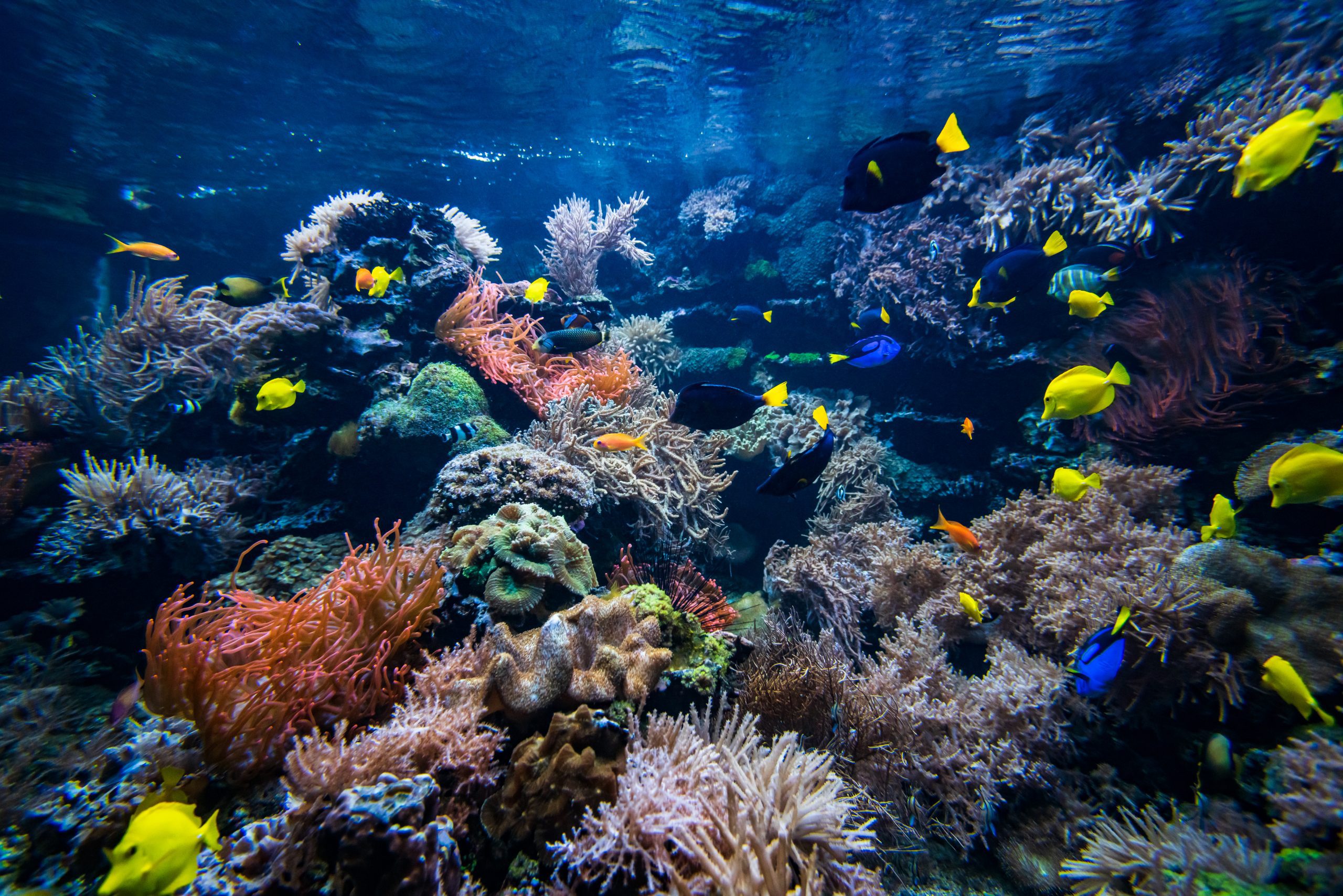Welcome to Open Learning College – Change your career, Increase your salary, and Improve your life.
 Course Overview
Course Overview
Embark on a transformative learning journey with the UK’s most innovative home study provider, offering courses designed to unlock your true potential and facilitate the career change you desire. Access our distance learning courses directly from anywhere, anytime, and acquire industry-recognised Professional Qualifications essential for advancing in your career.
Specifically, explore the flexible and convenient Oceanography (Level 3) course, an ideal way to gain a diploma qualification. Whether you aim for further education, improved job prospects, or expanded knowledge, this comprehensive course allows you to prepare thoroughly for exams or careers through home study. Plus, it’s structured to be accessible and beneficial even if you have no prior knowledge in Oceanography.
Oceanography is also often known as Marine science, and is the study of the world’s oceans and the processes within it. The world is made up of 70% of the Earth’s surface so we start by looking at how they are divided into oceans and the seas. Do you know the difference?
We look at how oceans formed, have changed, their geology, biology, its make-up, impact on climate, tides and waves, their history and geological past. Little was known of the oceans except of the currents and topmost few kilometres before the 19th century. It was not until the Challenger expedition of 1872-6 which surveyed, explored and researched the world’s ocean, that great advance was made to our knowledge of the oceans, and the planet as a whole.
 Course Key Topics
Course Key Topics
the Oceanography (Level 3) course is divided into 10 modules.
Module 1: Introduction to the Oceans and Oceanography
This first unit of the Diploma in Oceanography provides a foundation for the rest of the course. It starts by discussing the interdisciplinary nature of oceanography from a Biological, Chemical, Geological and Physical perspective. It involves mathematics and many calculations, such as the speed and direction of currents, routine measurements of the movement of the seas, oceans and atmosphere. Skills to research the different aspects of oceanography are built by investigative skills. Research of the past and the present helps us make predictions, e.g. about impending storms and identifies trends.
The module also covers:
- What is oceanography.
- Biological oceanography.
- Chemical oceanography.
- Geological oceanography.
- Physical oceanography.
- Operational oceanography.
- The Oceans of the World.
- Location of the Oceans and the Seas:
* The Oceans.
* The Seas. - Carrying out Oceanography research:
- Quality of information.
- Evaluating information.
Module 2: Maths for Oceanography
In this second unit, Oceanographers use mathematics in much of their work. In order to collect data and interpret it correctly to make accurate (as possible!) predictions about the impact on e.g. our climate, a thorough grounding in basic mathematical skills is required. This section appears early in the course so that as you study the remaining modules you will have the mathematical skills needed to help in your studies. This section of the course covers the following topics:
- Scientific units of measurement.
- Power, Indices, Scientific Notation.
- Order of magnitude.
- Significant figures and decimal places.
Statistics:
A. Mean and standard deviation.
B. Mode and median.
C. Samples and populations. - Graphs and charts.
- Basic Algebra.
- Basic trigonometry.
- Summary.
Module 3: The Ocean Basins
This unit looks first looks at how the earth was formed in its present structure – its separation into continents and the seas. We then look at the specific 5 main ocean basins in detail. How did they stretch out from the continental masses through plate tectonics, and how exactly did the basins form, move and get characteristically shaped (Bathymetry), e.g. Iceland was shaped by submarine volcanoes. Each aspect of the geology of the basins is labelled, accounted for and the diversity between each is shown. Students study how these basins continue to be shaped today. The unit is divided as follows:
- Topography of the ocean basin and Plate tectonics.
- How the Ocean form.
- Plate tectonics and continental drift.
- The age of the oceans and bathymetry.
- Types of rocks found in the ocean basins:
A. Terrogenous.
B. Biogenous.
C. Hydrogenous.
D. Igneous Rock.
E. Sedimentary Rock.
F. Metamorphic Rock.
G. Stratification.
Module 4: Properties of Seawater
Unit 4 looks at the other major component of the sea, the basins are full of sea water. The topography of the oceans affects the sea water, its structure, composition, and therefore it’s Biology – what lives within the internal environment and how it is sustained, and how light and sound travel through it. We start by looking at the Chemistry and properties of water, and how this affects the oceans, e.g. water freezes to dense ice which floats on top of sea water so that organisms and fish underneath do not die during the winter. This unit is divided into:
- Chemistry terminology:
A. Atoms.
B. Protons.
C. Elements, molecules, compounds. - The main properties of water:
A. Specific heat capacity.
B. Solvent.
C. Density.
D. Surface tension. - Variation between oceans:
A. Variation in density.
B. Variation in salinity.
C. Variation in temperature.
D. Variation in light. - Chemical composition of Seawater.
- Transmission of Sound (Sonar).
- Transmission of Light.
Module 5: Currents and Circulation
The oceans circulate around the world and move to create different types of currents and resulting climates, including extreme weather such as El Niño. This is crucial to human life as its affects all aspects of our life from our weather (winds and atmospheric pressure), the seasons, and climate change and the impact on the lands it meets. Currents can also be used to distribute energy and modern technology is helping us harness and use this energy more easily. The unique properties of water help maintain temperatures so that, for example the Gulf Stream helps warm the UK.
- The main types of currents.
- Gyres:
A. Subtropical Gyres.
B. Polar Gyres.
C. Vertical currents. - Subsurface or Deep currents.
- Currents in estuaries.
- Effects on climate:
A. El Niño.
B. La Niña.
C. Climate change. - Other features of currents.
- Measurements of currents:
A. Eurelian measurements.
B. Water drifters.
C. Acoustic Doppler Current Profilers.
D. Shore-based current meters.
E. Radar altimeters. - Energy production from currents.
Module 6: Waves and Tides
This module covers the classification of waves and what causes tides, and their relevance to the marine environment and ecosystem. We will look at how waves, e.g. affect beaches and the shape of coasts (through deposition or erosion), flooding or the impact of anomalies such as Tsunamis. Again both transport and can be used to harness energy. Students will study the following topics:
- The classification of deep-water and shallow-water waves.
- What causes the different types of tides.
- The principles of sediment transport and deposition.
- How tides and waves shape the shores.
- How tides and waves can provide an energy source.
Module 7: The Oceans and Climate
This module explains in greater depth the ways in which the oceans (and the specific properties of water) are linked to weather patterns and climate. Discussion about the theories of how climate might change in our future, and related issues such as how human influence may cause possible climate disasters. Why is there such controversy and disagreement about future climate change amongst scientists? You will cover the following topics:
- The Property of water and how it affects climate.
- The Effect of the Oceans on Winds.
- The Effect of the Currents on Climate.
- The Possible Effects of Global Warming.
- Control of Global Climate Change.
- Methods of Reducing Greenhouse Gas Levels.
- Strategies to Cope with Climate Change.
Module 8: Palaeoceanography
Palaeoceanography is the study of the geological history of the oceans. It gives us clues about the world’s climate in the past, and can help explain theories such as “why the Dinosaurs died out?” Students learn how rocks, fossils, oil and gas are formed. This unit examines how we can use the oceans to find out about the history of the Earth. The following topics are considered:
- Why study Palaeoceanography.
- Sediment formation.
- Extraction of Sediments.
- Sedimentary Rocks.
- Oil and gas formation.
- Geological timescales.
- Plate Tectonics.
- How the Earth has changed.
- How life evolved.
- Classification of species.
Module 9: Biological Oceanography
The oceans can tell us a lot about the history of the earth. The organisms within the oceans are dependent on the marine environment being hospitable for life. A study of the history of these marine organisms and their fossils can help us understand their development over time. Humans also depend on, effect and are affected by the marine environment, e.g. we fish the oceans for food, we pollute it with oil spills and this impacts upon the ecosystem. There may be many species yet undiscovered. This module will cover the following topics:
- Chemical cycles with in the ocean.
- Geothermal vents.
- Undiscovered species.
- Humans dependence on the oceans.
- Oil and Gas Extraction.
Module 10: Careers in Oceanography
So why do people study Oceanography? You may already know why you have chosen this subject. Oceanographers are employed in a wide range of different activities, and use their knowledge of biology, chemistry, physics and geology to study the seas and oceans. Careers can involve conducting research, exploring the effects of pollution or marine engineering, investigating climate change, monitoring the oceans for evidence of impact of human activity. This final unit will help you develop your skills in Oceanography and begin to plan a career using these new scientific skills. This unit covers the following topics:
- Development of Marine Careers.
- The Ocean as an energy source.
- Commerce.
- Telecommunication Cables.
- Ocean Mining.
- Career in Oceanography.
- The Different branches of Oceanography.
- Maritime law.
- Employment in related fields.
- Routes into Studying Oceanography.
- Assessing your skills and abilities.
- Career planning and opportunities.
- Employment opportunities.
(Please click on the curriculum tab above to see a detailed view of each module)
Course Content
Oceanography (Level 3) – FREE Starter Pack
How to…. (a series of explainer videos)
Module 1 – Introduction to the Oceans and Oceanography
Module 2 – Maths for Oceanography
Module 3 – The Ocean Basins
Module 4 – Properties of Seawater
Module 5 – Currents and Circulation
Module 6 – Waves and Tides
Module 7 – The Oceans and Climate
Module 8 – Palaeoceanography
Module 9 – Biological Oceanography
Module 10 – Careers in Oceanography
Course Resources
Final Exam
College Announcements
🔍 Explore the Depths of Oceanography Level 3 with £50 OFF the Course! 🌊💰
Ready to dive deeper into the world of oceanography?
For a limited time, seize the opportunity to enrol in our Oceanography Level 3 course with an exclusive £50 discount!
Use code OCEAN50 at checkout before the month concludes!
🌟 Why Opt for Our Oceanography Level 3 Course
Presented by Open Learning College, this course is your key to unlocking advanced concepts in oceanography. Dive into comprehensive modules covering essential topics—from marine ecosystems and ocean currents to understanding the impact of climate change on the oceans. Gain hands-on experience in exploring the wonders of the sea for a comprehensive understanding of oceanography.
💡 What Sets Our Course Apart
Expert Guidance: Benefit from seasoned tutors providing support throughout your oceanography learning journey.
Real-World Skills: Acquire practical knowledge crucial for success in the field of oceanography.
Flexible Learning: Tailor your studies to your schedule with 24/7 access to course materials.
Don't miss this chance to explore the depths of oceanography at a discounted rate! Enrol now, use code OCEAN50* at checkout, and embark on your journey towards mastering Oceanography. 💰🌊🕵️♂️
*This discount code cannot be used in conjunction with any other offer.









 Get Social!
Get Social!











Emily Richards